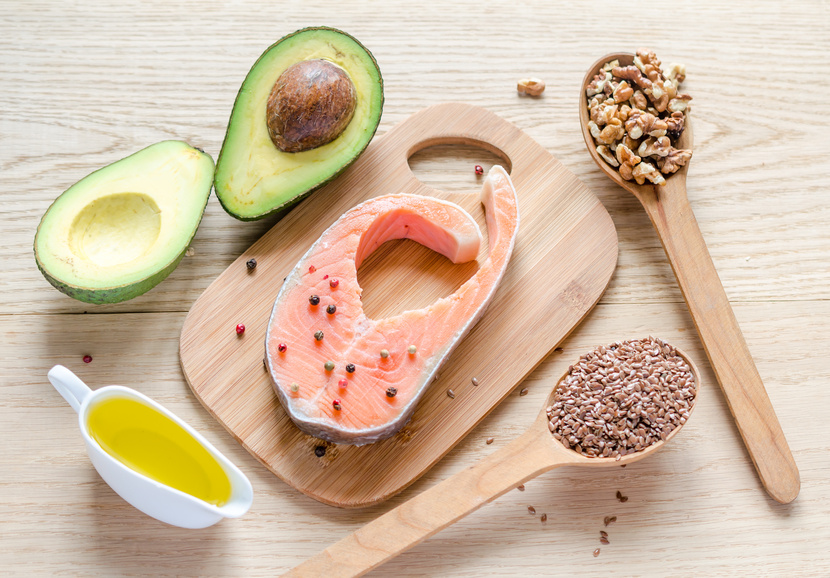
In the last article, we talked about diseases (including obesity linked to leptin resistance) that are caused by inflammation. We also discussed how inflammation can lead to stalled weight loss. If you didn’t get a chance to read it, go back to your e-mail or “my articles” on the website and take a look before you read this one. Today, we are going to talk about simple switches that you can do to decrease your overall inflammation which will help with not only your weight loss, but overall health.
Here is a great list of some simple things you can start doing today:
- Get some sleep! Inflammation is caused by any kind of stress on the body, whether from food, situational stress, or a physiological stress (like lack of sleep). Sleep also regulates the metabolism (addressed in an earlier article) but it also takes the body out of the chronically stressed mode. Remember, decreased inflammation helps with leptin sensitivity which leads to better regulation of appetite and satiety. 8 hours is optimal. Take the amount of sleep you are getting now, and start trying to add 15-30 minutes per night until you reach that. It will take some life adaptation, so take it one step at a time.
- Eliminate chronic exercise. Chronic exercise causes chronic inflammation (more than an hour 6+ days per week). Instead, try moderate exercise or high intensity exercise for a shorter duration. There is no reason to exercise more than 45 minutes per day. This raises inflammation in the body and leads to elevated cortisol levels (which leads to belly fat storage). Weight training is also a great addition to your workout routine as it allows for short bursts of cortisol and inflammation but repairs quickly and has the bonus of raising the metabolism.
- Drink plenty of water. Dehydration can contribute to inflammation as proper hydration flushes toxins from the body and maintains the proper internal balance. Aim for ½ of your body weight in ounces of water each day.
- Eat omega 3 containing foods (salmon, walnuts, almonds) or take a supplement. Omega 3’s are great for decreasing inflammation. The healthy fats in these foods are tremendous for alleviating joint pain.
- Decrease your overall sugar consumption. Sugar is inflammatory in the body and can disrupt the hormonal cycles that signal hunger and fullness as well as leading to many other diseases.
- Decrease blood sugar by keeping starchy foods minimal. Even whole grains can cause inflammation when eaten in quantity. Be mindful of getting most of your energy from low to moderate glycemic sources like fruits and vegetables.
- Eat more vegetables than you think you need. Vegetables (and fruits too, but veggies have less sugar) provide nutrients to the cells as well as create an alkaline environment in the body which decreases inflammation.
- Eat more whole food fiber. Fiber is key to elimination and proper absorption of nutrients (due to a clean gut). As many of our neurotransmitters are also produced in the gut, it is important to keep it clean and healthy with whole food sources of fiber (not fiber one bars). High fiber, low glycemic vegetables are the best choice. A good rule for spotting low glycemic vegetables is to look for ones you could eat raw. Broccoli, spinach, kale, cucumbers, cauliflower, peppers, zucchini are all good examples.
- Eat at home more often. No matter how healthy the choices at a restaurant may seem, they are in the business of making money and keeping customers happy. That usually means additives like MSG and other preservatives that you would never use at home. These additives not only promote systemic inflammation, but they disrupt hormonal function and slow the metabolism as well. Simple changes like cooking more than you need and saving the rest for later can help cut down on the burden of cooking every night.
- Take some time for yourself. In our busy, crazy world, it seems impossible to find time to just relax but it is critical to decreasing inflammation, creating hormonal balance, and healing metabolic function. Even taking as few as 10 minutes a day can help to give your body the messages needed to decrease systemic inflammation.

STEP(S) FOR THIS WEEK:
- Choose one food step and one behavioral step to work on this week. Be careful not to “stress” about the changes. Make them carefully, and integrate the changes into your life in a way that feels natural. You will be more likely to stick with them that way.